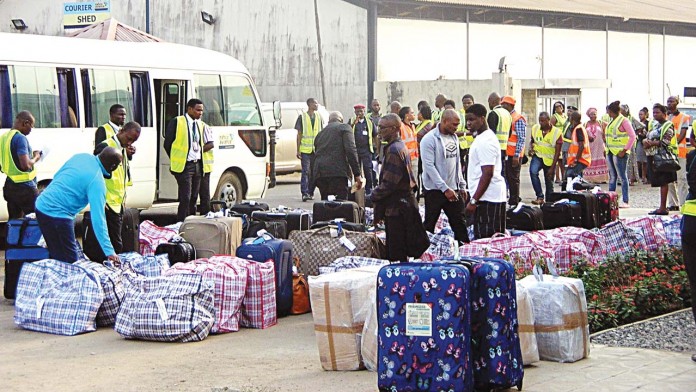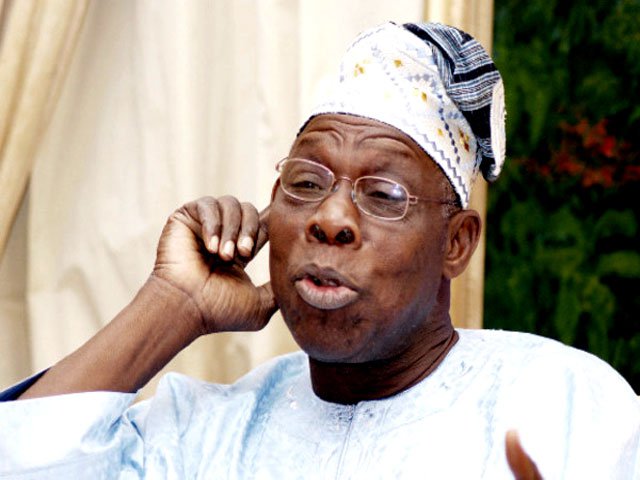Nigeria’s President, Muhammadu Buhari on Tuesday again warned member countries of the Economic Community of West African States (ECOWAS) against adopting the proposed currency integration in the sub-region by 2020.
Recall that the body had earlier proposed the adoption of a single currency across member states for easy trade by 2020.
Represented by Godwin Emefiele, Governor, Central Bank of Nigeria (CBN), Buhari, sounded the warning during the fifth meeting of the Presidential Task Force on ECOWAS Currency Programme on Tuesday in Accra, Ghana.
According to him, Heads of Government had not properly articulated and analysed a comprehensive picture of the state of preparedness of individual countries for monetary integration by 2020.
He reiterated that the non-preparedness of some member countries, attempt to water down the criteria and continuing disparities between macro-economic conditions in ECOWAS countries, continued to be major issues of concern that members must examine in order to make progress.
The President further observed that ECOWAS Heads of Government had not been adequately briefed on the full implications of forcing through the integration by 2020, particularly where some countries were not individually ready domestically.
While pointing out that there were still outstanding issues in the roadmap to an integrated currency union, he noted that the macro-economic fundamentals of many countries in ECOWAS were diverse and uncertain.
According to him, the inflation targeting regime recommended as framework was not feasible, as it was based on adoption of a flexible exchange rate regime, noting that the real convergence was nowhere near achievable despite efforts made so far.
Buhari therefore, called for a push towards ratification and domestication of legal instruments and related protocols, and the harmonisation of all fiscal, trade and monetary policies and statistical systems, with a view to limiting the extent of current policy divergences.
He also advised that the West African Economic and Monetary Union (UEMOA) countries to make a presentation on a clear roadmap towards delinking from the French Treasury.
Furthermore, the President called for a review of the fast-track approach to monetary integration and the harmonisation of plans by ECOWAS members with that of the African Union Programme of monetary convergence that had recommended a convergence deadline of 2034 for the establishment of Regional Central Banks in all sub-regions of the continent.
The Nigerian leader also used the occasion of the meeting to call for the establishment of an Ombudsman with powers to invoke sanctions when member countries are in breach of agreed standards, protocols and convergence criteria.
Similarly, the President called for the transformation of the West African Monetary Institute (WAMI) into a West African Monetary Zone Commission, equivalent to the UEMOA commission.
He stressed that his proposal of merging WAMI and WAMA, by the ECOWAS Commission into the ECOWAS Monetary Institute would be very critical in achieving monetary union in the West African sub-region.
TheNewsGuru.com reports that President Buhari had earlier in the fourth meeting of the Presidential Task Force on the ECOWAS Currency Programme held in October 2017 at Niamey, Republic of Niger warned against the adoption of the single currency initiative.
“Nigeria advises that we proceed cautiously with the integration agenda, taking into consideration the above concerns and the lessons currently unfolding in the European Union.
“To that end, Nigeria will caution against any position that pushes for a fast-track approach to monetary union, while neglecting fundamentals and other pertinent issues,” the President was quoted as saying.
Speaking further, Buhari said: “Although the ECOWAS Commission has anchored its pursuit of the new impetus to monetary integration on the information presented to the Heads of State which were the basis for their recommendations, we are concerned that we have not properly articulated and analysed a comprehensive picture of the state of preparedness of individual countries for monetary integration in ECOWAS by 2020.
“In previous meetings, we had specifically raised observations on the state of preparedness of the member states, the credibility of the union if anchored on watered down criteria, and the continuing disparities between macroeconomic conditions in ECOWAS countries, amongst others. And I would like to reiterate this concerns.”







